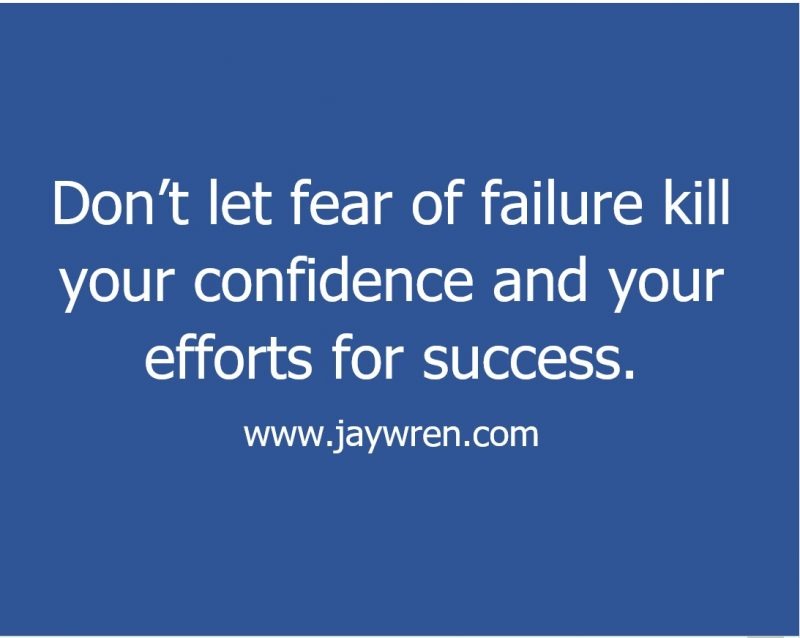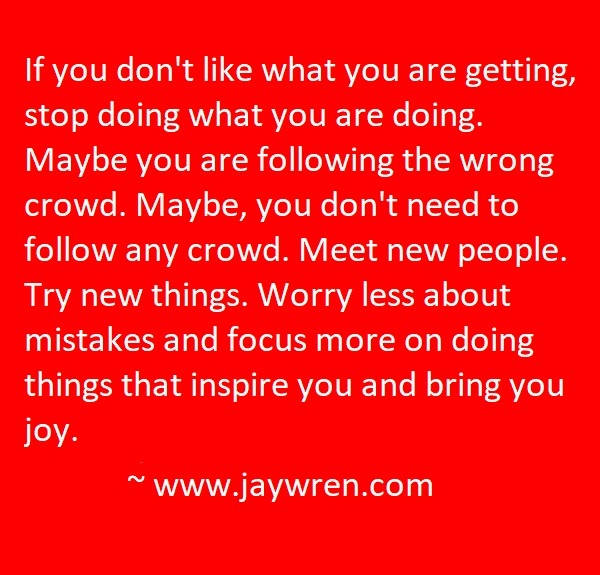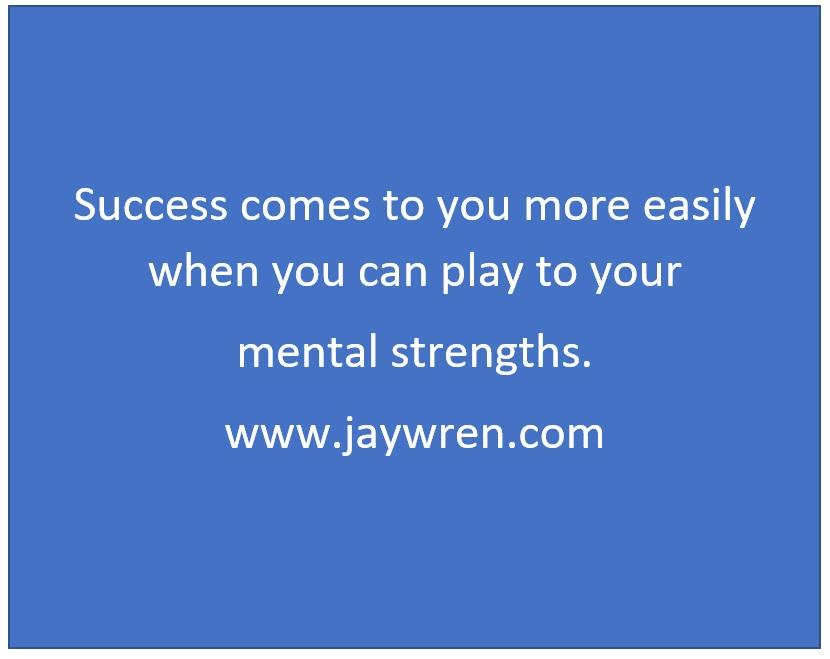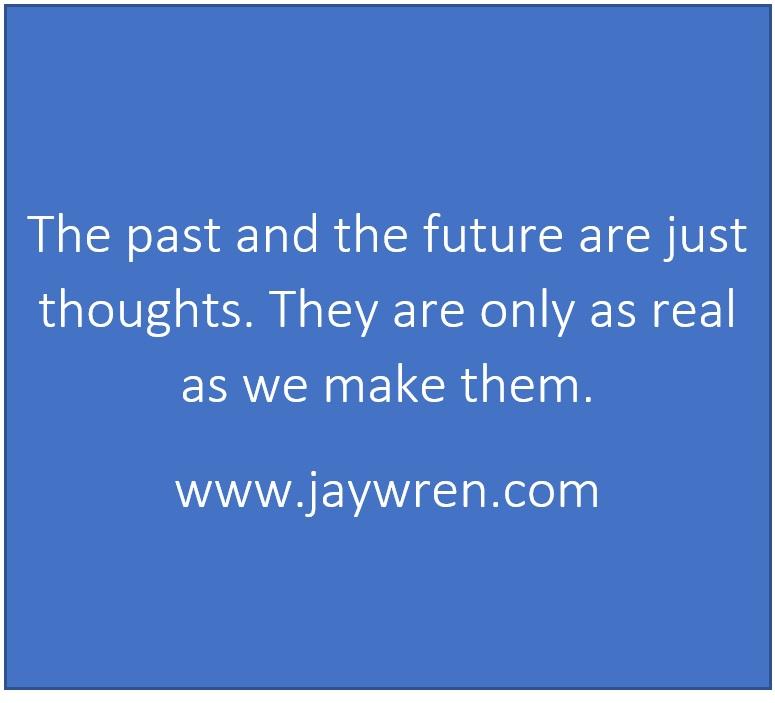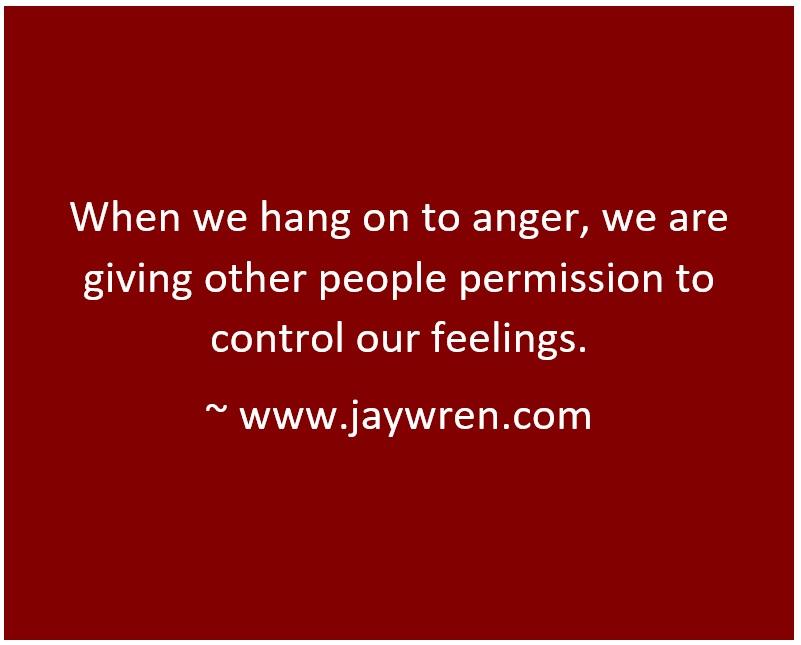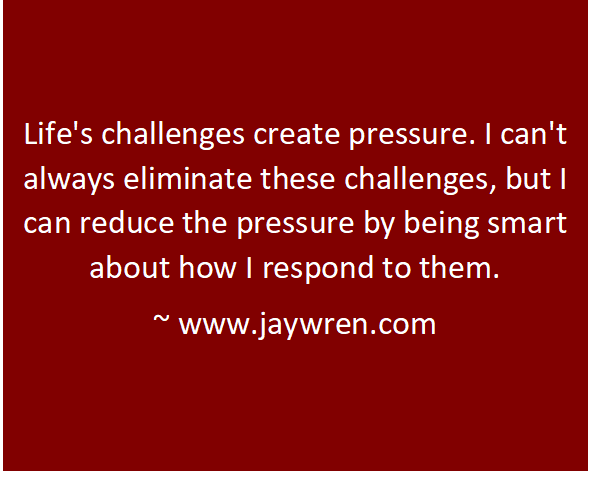Category: The Top 1% Mindset: Optimism, Mental Clarity, Happiness, and Motivation
Finding Joy in Life
If you don’t like what you are getting, stop doing what you are doing. Maybe you are following the wrong crowd. Maybe, you don’t need to follow any crowd. Meet new people. Try new things. Worry less about mistakes and focus more on doing things that inspire you and bring you joy. ~ www.jaywren.com
Mental Strengths: Aligning Your Career to the Way You Think
Mental Strengths: Some people are stronger at solving problems with one correct answer. They are convergent thinkers. Other people are stronger at solving problems with multiple solutions. They are divergent thinkers.
Aligning your career with the way your brain works will increase your ability to excel in the workplace. How can you shape your career around the way you think? Here are some ideas that may help you understand your strengths and weaknesses.
Mental Strengths
What Kind of Solutions Come to You More Easily?
To understand how your brain works, consider these two types of problem solving.
Convergent Thinking
Some people have terrific skills for solving problems that have only one answer.
2 + 2 =?
The specific answer is 4.
When people solve this type of problem, they are using convergent intelligence. Their reasoning converges or comes together to settle on this one answer. Their mental strengths can give them happier lives and more successful careers by working in roles that require convergent thinking.
Divergent Thinking
Divergent thinking skills enable people to see multiple solutions to the same problem. For example, many people climb a mountain by following a well-marked, well known path. This is the path most people know and the only path that most people take.
However, other people see multiple paths for climbing the same mountain. These people not only discover new paths. Their discoveries may help other people find ways of doing the same thing in new and more interesting ways.
Their mental strengths can give them happier lives and more successful careers by working in roles that require divergent thinking.
What Type of Problems Do You Like to Solve?
If you like to solve problems with convergent thinking, developing careers for solving those types of problems should be enjoyable for you.
Nearly every industry needs convergent thinkers. Whether you are an English teacher grading papers or an engineer validating the structural integrity of a bridge, you must have the ability to see fundamental answers specific to individual problems.
On the other hand, some industries rely heavily on creative solutions. Inventors are people who have success with divergent thinking. They find better ways of doing things. These people innovate. They look at existing platforms like computers and create new solutions using this platform. In the case of building bridges these people can design new bridges and turn the convergent tasks over to architects and engineers who can solve the integrity issues.
When to Use Both Ways of Thinking
If you are starting a company, you may have to solve problems that require convergent and divergent solutions. You are alone or have a small staff.
However, as your company grows, you can outsource jobs that challenge your patience and effectiveness. Furthermore, you can become more successful working in the areas where your attention focuses on your mental strengths.
Career Intelligence
There is no rule that baseball catchers cannot develop the skills to play first base or that a pitcher cannot also be a pinch hitter. Likewise, broadening your skills in both convergent and divergent thinking can increase your career intelligence. You can play at a higher level in jobs that require both types of thinking.
In this case, career intelligence is viewing opportunities to become smarter and more capable by using both types of skills. Finding jobs where you can broaden your career intelligence (that is, convergent and divergent thinking) most effectively will help you become more successful.
Moreover, developing skills in areas of both convergent and divergent thinking will help you throughout your career.
At the same time, stick to your core strengths. Working in the areas where your mind is more powerful will more easily enable you to succeed. Natural catchers are more effective behind the plate than playing a secondary, more challenging position.
Summary
When are you most effective? What roles play to your mental strengths?
Some people are naturally more gifted to think convergently. These people learn quickly and can apply what they learn to solving problems
Other people are more gifted to think divergently. With less knowledge than convergent thinkers, the people see options intuitively. They excel in helping companies find new ways to succeed in failing conditions.
Happiness and Joy: Steps for Finding Happiness Now
Don’t Wait for Success to Find Happiness.
Happiness and Joy don’t happen in the past or the future. Everything can only exist here and now. Becoming happy and finding joy today gives us energy and brings joy to our lives.
The past and the future are just thoughts. They are only as real as we make them. www.jaywren.com
Thinking about the past opens the door to regret and guilt. Thinking about the future opens the door to the fear of losing something or failing to get something.
When we are living inside our heads, the world moves along without us.
While many people spend time thinking about the future, other people are living in the present moment to build success and security. They are allowing themselves to know joy and happiness. They live fuller lives. Their minds are free and energized with focus.
Most people have found satisfaction in achieving a goal. There is peace of mind in having financial security.
But happiness must happen as we go along in life. Being happy gives us the energy to achieve our goals and create security.
Be Open Joy and Happiness
If we say that I will be happy when I get that job or that car or that other person in our life, we are cheating ourselves but putting conditions on our happiness. What happens to our lives when we find that we have plenty of money for our security but live in fear of losing that money? How happy are we when we have plenty of security, but are jealous of people who have more prosperity than we have? The fact is that we are not happy.
The first step in achieving joy and happiness is to get out of our head and into our world. Thinking about the past or the future creates risks to our happiness. Resenting people for their success takes our mind off the things we need to do to ensure our own success.
Take Action for Joy and Happiness
Here are things I do to find joy and happiness in the present moment.
Gratitude: I simply make a short list of things for which I am grateful.
Perspective: Why fret over things that we can’t control? I can’t control the weather, media, behavior of other people, and fluctuations of the stock market. However, I don’t have to think about those things.
We don’t have to wait for success to be happy. We just take action to create a healthier mind.
Anger Prevention: How Small Steps Can Help You Decompress
Anger Prevention: Anger is a normal feeling when we have experiences that threaten our beliefs or possessions. We can learn skills that give us a choice in the way we respond to that feeling.
Anger Prevention: Different Triggers for Different People
We all have individual triggers. I say individual triggers, because different things create different feelings and different responses in different people.
For example, heights frighten some people. For other people, heights are thrilling. Furthermore, the amount that people feel fearful or thrilled varies from person to person.
In the case of bungy jumping, some people are fearful of leaping off a high place to the extent that they cannot even walk out to point where other people jump with glee. Between these extremes are people who have more intense or less intense feelings about jumping off high places.
How Powerful are Triggers?
When triggered, we experience the impulse to act.
Emotions are not thoughts. And, under some circumstances, our emotions can fire faster than our ability to think before acting. For example, two people see a person fall. One laughs. Another one winces.
Neither person thought about how they would respond to what they are seeing. Instead, they are experiencing feeling in their unconscious mind.
Becoming Smart to Avoid Triggers
The first step in anger management is recognizing sources that create patterns in the emotions governing our thoughts. These patterns are circumstances that increase the likelihood that we will respond emotionally rather than mentally. However, we can become smart to avoid triggers.
When we recognize these patterns, we can make changes in our behavior that affect our ability to deal with stress.
For example, in rush-hour traffic on the freeways, there are miles of cars. The way that each driver experiences the drive varies from calm awareness to rage.
Rage can lead to dangerous actions. If we recognize the patterns of behavior that precede the rage, we can change that pattern. For example, caffeine, hunger, fatigue, and starting late increase anxiety before we even get on the road.
Additionally, anxiety can press us to try to drive faster than the flow of traffic. When we become frustrated with drivers who slow us down, our anxiety increases further.
The solution is to eliminate or change our emotions before we get on the road. Before dashing out the door, we take a break to relax. In other cases, such as making appointments, we can leave early. Additionally, we can eliminate caffeine or eat a light snack to reduce intense feelings that come from pressures of being on the highway.
Once we start our drive, we can decide to be part of the flow of traffic and not an intimidating threat to our own safety and the safety of others.
Conclusion
It is not always easy to overcome anger. However, it is smart to take action to prevent the anger in the first place.
Stress Reduction for a Clear and Productive Mind
Stress reduction: Life’s challenges create pressure. I can’t always eliminate these challenges, but I can reduce the pressure by being smart about how I respond to them.
Action
I feel stress when I put things off.
To overcome procrastination, I simply agree to do one small thing. A common example is to go for a walk, I lace up my shoes. To do odd jobs around the house, I lay out my tools. Often, this one thing sets in motion my completing small tasks. To reduce stress, I break projects down into multiple, simple steps.
When I am stuck with writing an article, for example, I write a statement. From there I write the information to explain the statement. I might write one paragraph. I save what I have written as a draft. Over a few hours, I may stop several times. However, by coming back a new information through the day, I complete the article.
Write Things Down.
When something is bothering me, I can write it down. Writing takes the sting out of stress. Further writing helps me process anxiety. Moreover, the further writing often leads to solutions to solving problems that bother me.
From there, I have a plan of action that gives me the confidence to be more productive. I have a sense of accomplishment. I feel less stress.
Eat Healthy Food First
When hunger makes me anxious between meals, a snack cuts my anxiety until mealtime.
Sugar snacks make me hungrier. The sugar demands insulin to burn the sugar. Somewhere in the lack of balance between sugar and insulin, I feel anxious.
Therefore, I try to keep more satisfying snacks handy. Cheese, nuts, peanut butter are calorically dense, but reduce cravings and quiet the anxious voices in my head.
Take Breaks
Being tired clutters my mind. I become less productive. My cluttered mind focuses on problems.
For me, a power nap or a walk help me recover from the fatigue of working on most projects. Simply walking for a few minutes reduces my anxiety.
To remind myself to move each hour, I have notifications on my calendar to leave my desk and move around.
Get Plenty of Sleep
Not only do I take breaks. I try to get plenty of sleep. Allowing my brain to rest enables me to make better decisions. Better decisions increase success and cut stress.
Lack of rest is one of the steps to burnout. We reach a point where overdoing our job cripples us in ways that we can’t perform at work.
Keep It Real
It is so easy for me to want to control national or international events. Thinking that I can control these things is completely fruitless and painfully stressful.
People in forums say things that annoy me. Correcting them is pointless. I can’t police the Internet!
Likewise, I can easily believe that I can change other people. There are things that I can do that affect how other people react. However, just changing my own behavior is not always easy. Believing that I can change other people is often impractical.
Frustration over the things I can’t change creates stress. I try to keep it real about the things that I can change and not change.
Talk with Friends
Just having friends helps me beat stress. Talking to friends gets me out of my own head and into the present moment. Furthermore, in talking with friends, I get practical information on dealing with challenges in my life, thereby increasing success and stress reduction.
Stress Reduction
Reducing stress clears our mind and increases our long-term success. The steps to stress reduction include steps to increase our health.
